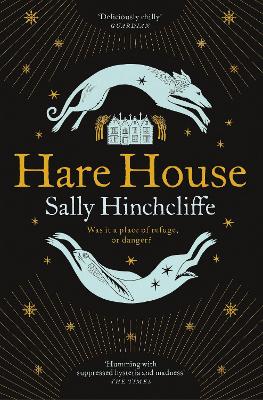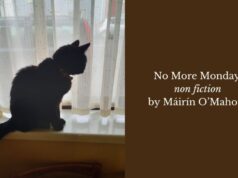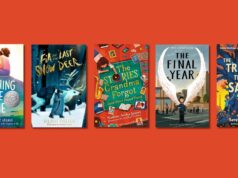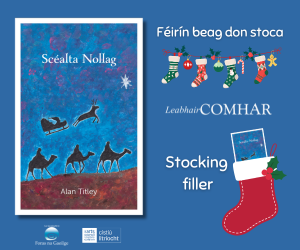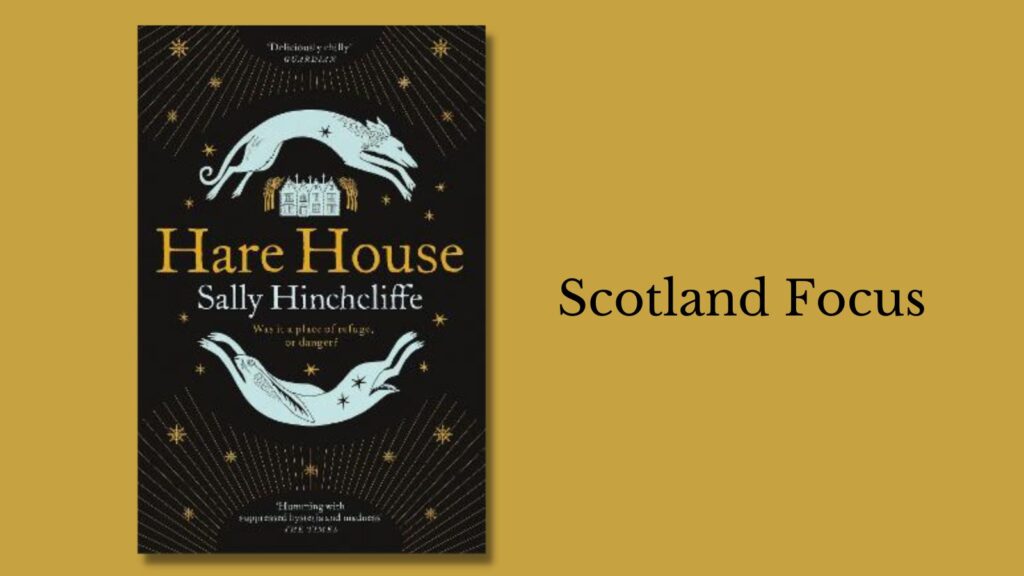
Hare House|Sally Hinchcliffe|Pan Macmillan|£8.99
Tension and dread in Hare House, by Sally Hinchcliffe— a novel of skilful uncertainty and building disquiet
by Susan McKeever
The unnamed narrator of this twisty, compelling, verging-on-horror tale arrives in a remote part of south-west Scotland in the fresh early days of autumn, keen to escape her life in London.
There, an incident in the all-girls’ school in which she taught left her without a job—and as somewhat a victim of a witch-hunt. Or so she says.
We will slowly come to realise over the course of the story that we cannot be sure that her version of events is the truth – a device that makes this read all the more compelling. We will also see that the ‘place of peace’ in the countryside where she hoped she might find refuge, offers anything but.
She rents a small cottage in the grounds of the Hare House estate, home to her handsome landlord Grant Henderson, and his fragile, mad-as-a-box-of-frogs younger sister Cass. The Henderson parents are dead, killed in a car crash, and the older brother Rory, an army officer, was supposedly killed in action tragically young.
In the neighbouring cottage lives the dour, impenetrable Janet, who mysteriously always seems to know exactly what’s been going on up in the big house. After a series of hysterical episodes, Grant decides that Cass is too unstable to go back to her boarding school, and employs his new tenant to be her private tutor.
Disquieting
The first disquieting episode involves a hare (no surprise there). When the bus she is travelling on back to her cottage from the local village hits a hare, the driver leaves her to witness the animal’s death throes alone: “there was no fear in its eyes, but something … watchful and knowing”.
Soon after, she visits the estate’s hens near the cottage, only to find them all dead: “Each hen lay where it must have fallen, a heap of bright russet feathers against the green.”
The birds show no sign of injury, and Cass sits in the middle of them, cradling one of the bodies. Inviting her back to the big house, Cass connives to let Grant believe that is was not her who found them, tacitly implicating our narrator in guilt.
The hare motif recurs in the grand hall of the big house, where glass cases display stuffed, clothed hares posed in disturbing tableaux of a wedding scene, a schoolroom, and a tea party.
Tension
The tension and underlying sense of dread ramp up as the narrative unfolds. The words ‘Exod 22:18’ appear on steamy windows or scratched on gravestones, alluding to the biblical verse “Thou shalt not suffer a witch to live.”
Strange clay figurines with human hair appear in the cottage fireplace. Estate worker Davey’s dog disappears.
And when talking about Janet, Cass assures our narrator, “Well, you know she’s a witch of course”, and this seems more and more likely in the uncanny way in which she appears out of thin air, and knows exact details of events involving the Hendersons.
On seeing the biblical words on the window during a dinner party, Cass dropped a dish of potatoes on the floor; the next day Janet slyly asks her neighbour, “Enjoy your tatties?”
As the story reaches its climax, a massive snowstorm closes in on the area, trapping everyone in the big house and sending events spinning wildly out of control.
Mind games
We’ve had games played on our minds in the lead-up to this, and are left wondering more and more about the ex-teacher’s reliability, especially as she ruminates on her past life in London, and the reasons for her dismissal.
On her watch, her entire class of sixth-form girls fainted at once, crashing to the floor “like petals from a rose”. It wasn’t a trifle – all girls had to be taken to A&E in ambulances.
Then there are her comments about being done with teenage girls; her violent loss of temper with Cass over a prank with the stuffed hares: “I grabbed her by the shoulders, digging my fingers in hard … I had the satisfaction of seeing her expression change … to real fear.”
Is Cass really safe with her new tutor? Hinchcliffe builds this uncertainty masterfully, and keeps us guessing right to the end.
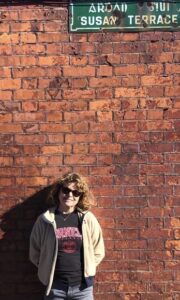
Susan McKeever is an editor, writer and ghostwriter for several Irish and international publishers and authors. She works from her home in the red-brick heart of Dublin’s Portobello. @MckeeverSusan, susanmckeever.biz








